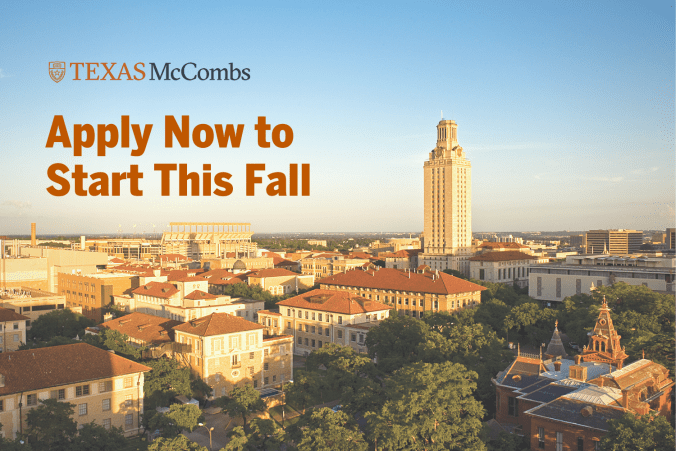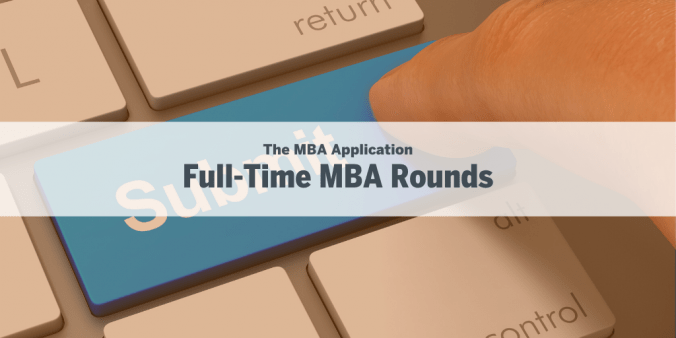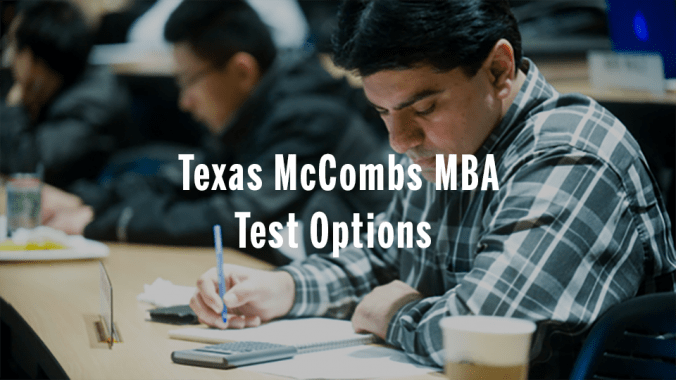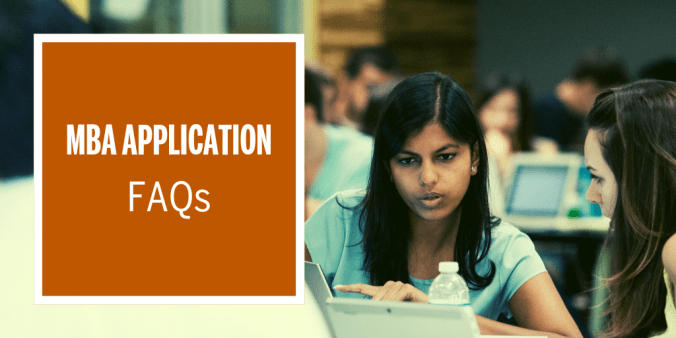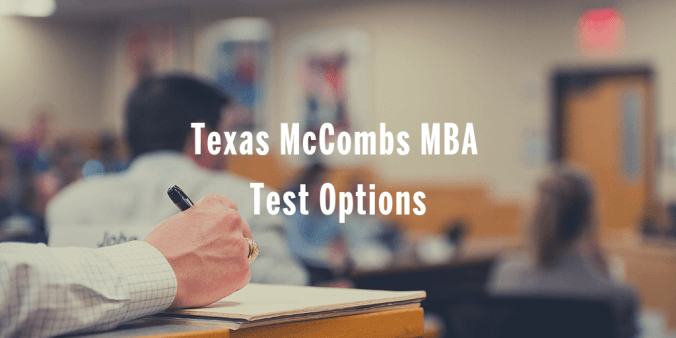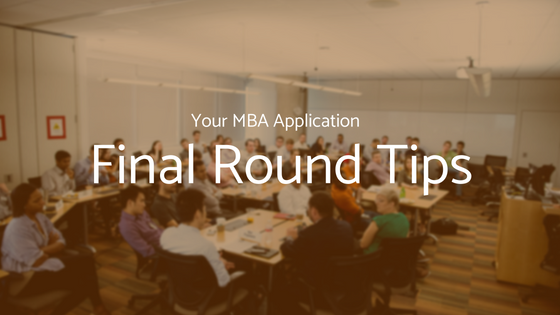Standardized exams like the GRE, GMAT, EA, TOEFL & IELTS help us to evaluate a candidate’s academic preparedness for the rigor of business school and is one metric used to compare candidates within a large pool of applicants.
In addition, studying for and taking the exam – for some, even taking it multiple times – can show the admissions committee your commitment to the competitive business school application process and how you may approach academic challenges as a student.
However, we understand that many are experiencing hardships due to the COVID-19 pandemic and that these challenges may be affecting your applications plans and ability to take an exam. Due to the unprecedented circumstances, we are providing applicants who are unable to take an exam in person or online the opportunity to petition for a test score waiver.
Here, our Admissions Team answers some questions you might have about the Texas McCombs MBA COVID-19 test waiver, including who the waiver is for and how it might impact your application.
Who is eligible for a COVID-19 test waiver?
Applicants who meet both of the criteria below have the opportunity to petition for a special test waiver:
- You are unable to take an exam in-person at a designated testing center due to lack of availability in your region, or because you or someone in your household is immunocompromised, AND
- You are unable to take an exam online due to lack of availability in your region, technology or other test-taking requirements (e.g. device availability or compatibility, slow internet connection, testing environment)
If you do not meet both of these criteria, we require that you complete the standardized tests prior to submitting your application. Both GMAC and ETS have introduced remote testing options for the GMAT, GRE, EA, and TOEFL exams for candidates impacted by coronavirus, and the majority of testing centers have re-opened globally with stringent health and safety precautions.
How do I request a COVID-19 test waiver?
If you meet both requirements above and would like to request a COVID-19 test waiver, please email TexasMBA@mccombs.utexas.edu to receive a link to the petition and to learn more about the test exception process.
Is there a deadline to request a COVID-19 test waiver?
The test waiver petition must be approved by the admissions committee before you submit your application to McCombs. The admissions committee may take up to five business days to review your petition, so please complete the petition 10-15 days prior to your planned application submission date.
How does a test waiver impact my application?
If you are approved for the COVID-19 test waiver, you may be asking yourself, “What are my chances for admission?”
The truth is that by removing one component from your application, your other components will carry more weight in the committee’s final decision. Below are some items to consider as you craft your application.
Academic History
Does your undergraduate or graduate transcript accurately reflect your academic ability? If your GPA is low, and you do not submit a GMAT or GRE score, the admissions committee may have concerns about your ability to succeed in the rigorous MBA curriculum.
One other factor to consider is whether or not your quantitative ability shines elsewhere in your application. While many of our MBA students come to McCombs from non-quantitative majors, these applicants are typically able to prove their quant prowess through the GMAT or GRE. If you come from a non-quantitative background and qualify for a test waiver, you will need to find other areas within your background or experience that can demonstrate your quantitative skills. At the end of the day, we want to make sure that you are set up to succeed academically in the program. If the admissions committee has concerns about your quantitative ability, it may impact your chance of admission, or you may be required to complete pre-MBA coursework prior to admission and/or prior to enrollment.
Work Experience
Your work experience will be reviewed thoroughly by the committee for leadership potential, progression and/or increasing responsibilities, and achievements. Generally, the level of responsibility someone has within a company correlates positively to how they will perform in a rigorous graduate educational program. For those with less than the average work experience, a standardized test score may make your application more competitive.
If you have any professional certifications, such as the CPA, CFA, Series 7, or others – be sure to highlight these on your resume and within your application, as attaining these types of certifications helps show the committee your academic readiness. Advanced or terminal degrees should also be highlighted.
Career Goals
If your post-MBA career goal is to work in management consulting or investment banking, employers in these industries may ask that you provide your GMAT score when applying for internships or full-time positions. If you qualify for a test waiver and are considering pursuing post-MBA jobs in these industries, it is important that you are aware of this before enrolling because you may end up having to take the exam to apply for these roles.
Scholarships
Scholarship awards are competitive and limited in number. Scholarship decisions are based on a longstanding holistic review process that takes into account your entire application and serves to assess the overall strength of your candidacy, including readiness for academic rigor, career goals, leadership potential, and fit with our program culture. Submitting an application without a test score may limit the information available to award a merit-based scholarship.
One other note: Admission deferral requests for the Full-Time MBA program will not be considered if you gain admission to Texas McCombs and have a test exception.
What if I’m an international student and am not able to take the TOEFL or IELTS?
If you are an international student who does not qualify for our standard TOEFL/IELTS waiver based on work experience and/or education history, but you meet the criteria for a COVID-19 test waiver, you may be asked to prove your mastery of English via other avenues, such as a meeting with an admissions committee member or an additional essay request. In addition, if admitted you may be required to enroll in and pay for the pre-MBA Business English Program, which occurs in June 2021.
Final Thoughts on the COVID-19 Test Waiver
The COVID-19 test waiver is intended only for those who cannot take the exams in person or virtually due to circumstances beyond their control. If you qualify for a test waiver and believe that your application will not be negatively impacted by the lack of a test score, we encourage you to submit the petition and apply when you are ready. However, it is important to remember that we have multiple application rounds for a reason! For some, it may be best to wait to apply until you can submit with test score in-hand. The decision will be different for every applicant, and we encourage you to approach this thoughtfully.
We wish you well during these difficult times. Please contact us if you have any questions, and best of luck on your application!


